|
Welcome Andrew! Thanks for taking some time to chat about writing. First, a few quick-fire questions: Who is the greatest Viking of them all? Which is the scariest monster you’ve ever read about? And what is your writing/translating beverage of choice? Technically not a Viking, (Vikings are Norse pirates) but I’m going with Leifr Eiriksson. Probably the most famous Norseman of them all, he actually was a peaceful man, the first European to set foot in the Americas (491 years before Columbus,) bringing Christianity to Greenland, and rescuing shipwreck victims. Scariest monster goes to Ungoliant from J.R.R. Tolkien’s legendarium. The Queen of the Spiders even scared Morgoth, Middle-Earth’s equivalent of Satan (who makes Sauron look like a schoolyard bully)! I also have arachnophobia, and Shelob is hard enough to watch in Return of the King, and Ungoliant is Shelob turned up to ten-thousand! I drink both tea and coffee, but I’m going to go with tea. Especially a P.G. Tips builder’s brew! "Scariest monster goes to Ungoliant from J.R.R. Tolkien’s legendarium." We both share a love and passion for Viking history, particularly the epics such as Beowulf. What drew you to study these texts and, in particular, to explore them through your own translations? I first got interested in history at age four because of Indiana Jones. I wanted to be an archeologist, so borrowed all kinds of books on ancient cultures, especially on ancient Egypt. A few years later, my focus shifted to medieval history. Later, I found out that Tolkien specifically based his works on Anglo-Saxon and Norse cultures, so my studies soon began to focus on the early Middle Ages. When I was 9, I was diagnosed with Friedrich’s Ataxia, a rare genetic disorder, similar to Muscular Dystrophy, and my pursuits became more and more academic, and less archeological. "Later, I found out that Tolkien specifically based his works on Anglo-Saxon and Norse cultures, so my studies soon began to focus on the early Middle Ages." Several years ago, I took a course on Old English from Michael Drout at Signum University (you can take the class as an Anytime Audit). At the end of the course, Professor Drout suggested we read Beowulf in Old English to become better acquainted with the language. Rather than simply read it, I decided to translate it into modern English and write an extensive commentary. Congratulations are in order for the publication of your new translation of Beowulf! Talk us through the journey of exploring this famous text and rendering it in this new translation. What are you hoping that readers take away from reading this story in this fresh light? For the original text I used a book called Klaeber’s Beowulf. When coming across words I was unfamiliar with I would use the Bosworth-Toller Old English Dictionary. Sometimes I chose to go with more archaic terms because it fit the alliteration better. I used more recent scholarship and that was reflected in the way I translated some of the words or phrases, for example: a damaged word in Line 587 is typically read as “hell,” but I offer the reading “hall” which gives the line a very different context. I hope that this new translation, with its alliteration, will harken back to older translations, such as those by Francis Gummere and John Clark Hall, but will also give it the accessibility of modern translations. "I hope that this new translation, with its alliteration, will harken back to older translations, such as those by Francis Gummere and John Clark Hall, but will also give it the accessibility of modern translations." Beowulf is getting a lot of attention right now with Maria Headley’s new translation, a very modern take on the tale, which was released a short while back. What are your thoughts on modernizing ancient texts like Beowulf and why is it important that these stories continue to be told today? While I don’t mind modernization of ancient texts, I actually had a much different intention for my translation. I feel that many recent translations modernize it so much, that it loses much of its beauty. I understand that pre-modern texts can be difficult to read, (that is the main reason I provided an extensive commentary along with the translation) but often they lose their alliteration and meter, which is much of poetry’s appeal. In talking with Dr. Alison Killilea and Norse epics student Rosemary , I complained about the lack of quality film adaptations of this incredible tale. Do you have a favorite film adaptation of Beowulf or do you have any ideas as to why it has been so hard to capture on the silver screen? My favorite movie adaption of Beowulf has to be The Thirteenth Warrior. Based on Michael Crichton’s novel Eaters of the Dead, it’s not a straightforward Beowulf adaption. It follows an Arab, Ahmad ibn Fadlan (portrayed by Antonio Banderas,) who gets caught up in an adventure with a band of Vikings, led by a warrior called Buliwyf (portrayed by Vladimir Kulich.) If you are familiar with Viking history, you may recognize the name ibn Fadlan; he was an ambassador from Baghdad, who gave an eyewitness account of a Viking ship cremation on the River Volga. Crichton wanted to show a possible historical basis for Beowulf, so he was trying to give a more natural rather than supernatural explanation for the monsters in the story. There are some anachronisms (such as Buliwyf wearing plate armor in one scene) and other inaccuracies, but the movie is well written. While not a perfect adaptation, it is probably the most entertaining adaptation I’ve seen. "My favorite movie adaption of Beowulf has to be The Thirteenth Warrior." As an author of fiction set in a Viking-like world, I often find myself challenging tropes associated with Vikings in popular culture. What false assumptions about Vikings or Germanic culture do you hope to address through your work with these ancient texts? A lot of popular culture portrays Vikings or Germanic people as people who would only raid and plunder, but I hope that with my different works people will appreciate that Vikings had their own culture and that they even had deep thoughts. When you take the time to study their culture and way of life, barbarian is no longer an adequate way to describe them. Can you give us a sneak peek of what your next major project will be? Any hints or perhaps a little snippet to get readers excited? My next big project is a trilogy of historical fantasy novels called Guthbrand’s Saga. I am hoping to have these novels traditionally published, so if you’re an agent or know of someone who is, feel free to contact me! The first book is completed and I am currently working on the second book. "My next big project is a trilogy of historical fantasy novels called Guthbrand’s Saga." The books are set in early 6th Century Norway, and are prequels to Beowulf. Book 1 is called Troll Bane. The story opens with Trolls raiding farmsteads bordering the wilds of Jötunheim. A jarl named Guthbrand and his small warband set out to hunt them down, but the closer they draw to a battle Guthbrand knows they can't win, his men's lives weigh heavy on him. Guthbrand’s Saga has characters and creatures from Norse mythology and legendary sagas. Characters share songs and folktales inspired by Old Norse sources. I paid special attention to surrounding this fantasy-infused story with historically accurate details and placing it in precise geographical locations so that you can even follow the party’s journey on a modern day map. I actually provide a map with the Old Norse place names. Like so many fantasy authors, I have been greatly inspired by the works of J.R.R. Tolkien. Like him, I have tried to create an expansive world inhabited by people and creatures with their own rich cultures, languages and history. "I paid special attention to surrounding this fantasy-infused story with historically accurate details and placing it in precise geographical locations so that you can even follow the party’s journey on a modern day map. I actually provide a map with the Old Norse place names."
0 Comments
This past year has been turbulent to say the least; with the number of ups and downs, I still can hardly tell whether I’m standing on my head or on my feet. However, one of the most notable ‘ups’ was that I ran a successful Kickstarter. Then I ran another one. And then one more! In fact, in the past ten months I ran three successful Kickstarter campaigns and collectively raised over $35 000 USD for an Old Norse phrasebook, a Viking-themed card game, and an anthology of historical fiction. This does not make me a Kickstarter expert by any stretch of the imagination, but I have learned a few things and I hope to pass on a bit of insider knowledge here for crowd-funding hopefuls considering this route to publication. "[In] the past ten months I ran three successful Kickstarter campaigns I have an idea. Should I run a Kickstarter? If any creator was to ask me this question, I would ask them three questions in return:
If you answered yes to these three questions then I think your idea is probably viable for a Kickstarter campaign. (Note: ‘viable’ does not guarantee success.) If you answered no to any one of these three questions I would strongly discourage you from pursuing funding through Kickstarter. Instead, I would suggest that you pitch your idea to publishers who can handle the items above while you focus solely on the creative aspect of the project. "If you answered yes to these three questions then I think your idea When should I start working on the Kickstarter? I think there is a misunderstanding of timelines when it comes to Kickstarters for new creators. Way back in the day, the idea of pitching a project, getting it fully funded, then working on it for six months to two years while backers wait patiently may have been an option. These days, you want to have a fully finished product (be that a game, book, album, etc.) as you will be competing with very polished products for attention and for funds. My suggestion would be to complete the ‘idea to reality’ stage first, make sure it really is as awesome as you were hoping it to be, and then begin to prepare for a Kickstarter campaign launch. " My suggestion would be to complete the ‘idea to reality’ stage first, make sure it really is as awesome as you were hoping it to be, and then begin to prepare for a Kickstarter campaign launch." I would budget about 5-15 hours a week for pre-campaign work (designing graphics, recording the video, networking, securing promotions, getting feature spots on podcasts or in relevant publications, developing publicity materials, recruiting followers on the pre-launch page, etc.) for about three months before the campaign and then 15-25 hours per week during the campaign. Any work you complete before the campaign will be very much appreciated by your future self during the mid-campaign madness. I highly suggest working with a partner (or a team) on this as that is a lot for one person to handle while remaining somewhat sane. What funding goal should I set for my Kickstarter? This is highly dependent on what the product is, but in general you obviously want to cover the cost of printing or production. Be sure to get a quote for this before you set your funding goal and do not just ballpark your costs. If you’ve never worked with a printer or a manufacturer before then do your homework early in the planning stages. I had friends who funded their board game on Kickstarter then received copies from the manufacturer overseas, 30% of which were defective. They were on the hook to cover thousands of dollars of re-printed games out of pocket; it was either that, or lose the significant following they had built upon Kickstarter over several successful projects. Additional expenses, which can be significant, include Kickstarter’s 5% fee, warehousing and distribution, and any costs related to fulfillment management services. Typically it is understood that backers will be charged shipping (be very careful if you plan on including shipping in the backer price) and most creators, even small ones, will use a fulfillment manager such as CrowdOx to help with post-campaign delivery. I would highly recommend that another buffer of at least 5% be added to the funding goal to cover any unforeseen expenses related to the campaign. "I would highly recommend that another buffer of at least 5% be added to the funding goal to cover any unforeseen expenses related to the campaign." Of course, there is also the whole issue of your being paid for the creative work you have done. I would suggest using the Kickstarter to fund the production costs or the print run then pay yourself through post-campaign sales. For example, if you fund a print run of 2000 copies of a book and you have 800 backers, then there are 1200 copies that can be sold post-campaign. Not everyone would agree with me on this, but consider the fact that you are paying Kickstarter 5% of your ‘creator’s fee’ if you raise those funds through the platform. I just launched my Kickstarter! Time to sit back and let the pledges roll in? (Spoiler Alert: The answer is no.) No amount of pre-campaign preparation can prepare you for the rush, the thrill, and the terror of your campaign launching on Kickstarter. You are baring your soul, your dreams, and your ambitions to a nebulous universe of interconnected intelligent entities surfing across the vast expanse of the web. When the campaign begins, it is time to start pushing harder than ever to reach new audiences, network with influential people around the topic of your project, and follow up with media features you set up during the pre-campaign. During my third campaign we were fortunate to be selected as a ‘Project We Love’ by Kickstarter. Our campaign was featured on the ‘Project We Love’ page and we were given access to a promotional badge which helped us stand out. Only 8-9% of all Kickstarter projects are selected to be in this category so it is a significant achievement; however, there is no process to apply for this status as projects are selected using a secret process that happens behind closed doors. "During my third campaign we were fortunate to be selected as a ‘Project We Love’ However, if you look at the current ‘Projects We Love’ page you can identify some themes in terms of which projects are getting selected. While not every project might fit into this category, consider tweaking your campaign page to try and catch the eye of a Kickstarter administrator. Note that your campaign might be live for several days before you receive notice that your project has been chosen as a ‘Project We Love’ and such a designation does not guarantee success. My Kickstarter is live and it is not doing very well. Should I pay for advertising? This is, unfortunately, an all too common experience, especially for first time creators. Overall, only 38% of projects on Kickstarter reach their funding goal by the end of the campaign. Creators need to be prepared for the worst-case scenario but should not sit back once the campaign begins. The energy of the campaign, especially in the first few days, will be key to either its success or its failure. It is very common to have a mid-campaign plateau and that is nothing to panic about. The spike of pledges in the first few days and the rush of backers who had been following the project or holding back in the final hours are like riding an extreme roller-coaster, but this middle section can feel like trudging through a desert of despair. At this stage, if the project has not yet funded many may feel immense pressure to pay for advertising in a desperate attempt to reach more people. "The spike of pledges in the first few days and the rush of backers who had been following the project or holding back in the final hours are like riding an extreme roller-coaster, but this middle section can feel like trudging through a desert of despair." I would caution against paid advertising in general. If you have a background in SEO analytics or marketing then maybe you can turn this to your advantage. However, paid advertising will never, in my opinion, be able to match personal recommendations. Having an influential podcaster, author, or academic personally share your project and encourage people to back it is more authentic than paid advertising and will attract the kind of loyalty that these projects need to succeed. People need to believe in the project like you do, and that sense of communal excitement is difficult to generate without personal recommendations. Besides, there are plenty of people ready to take your money with baseless promises of Kickstarter success, but once they are paid your money is gone, gone, gone. My Kickstarter is funded! Now what? Ah! You’ve reached that enviable state for which so many have striven. However, there is still much work to be done in finalizing the production of your campaign, fulfilling orders, and staying in touch with backers. One thing I was surprised to learn is that many of the pledges bounce, sometimes upwards of 10% of all pledges; Kickstarter has no way of securing these funds if the payment information is not current and backers do not update their details before the funds go through. This is not too much of an issue for campaigns that significantly overfund, but if you barely make it over the line at, say, 102% funded on a $9000 goal, you may end up with only 95% funding once all the funds come through. This is yet another good reason to build in a bit of buffer in your original funding goal. "One thing I was surprised to learn is that many of the pledges bounce, Last, but not least, if you begin creating projects through Kickstarter you are likely to continue with future campaigns that expand on your series, universe, or game. While answering mountains of backer questions, wrestling printers to meet your promised deadlines, and interacting on social media, remember that these amazing people who backed your project may be interested in backing future projects, provided you’ve shown yourself to be reliable and professional. Keep backers up to date and inform them of delays in fulfillment or any other items relevant to the campaign. "...remember that these amazing people who backed your project may be interested in backing future projects, provided you’ve shown yourself to be reliable and professional." All of this is really just scratching the surface of the wild and wonderful world of crowdfunding; if you are interested in learning more I encourage you to check out the extensive collection of posts by Stonemaier Games or to send me an email through my contact form for more specifics on any of the topics above. Keep making the world a little bit more awesome with everything you create! For more from Josh, explore the sub-category 'Articles' on this blog or following him on Twitter!
Welcome Lee! Thanks for taking some time to chat about writing. First, a few quick-fire questions: Sweet or Spicy? Boats or bicycles? And if you could take a COVID-less vacation anywhere in the world where would you go? Quick fire answer - Spicy! Love everything spicy. And Boats! Big fan of boats and maritime history. I spent a lot of time in Plymouth dreaming of the age of sail and naval awesomeness. Also without even a second of thought I would say definitely Mexico for a dream vacation. I love the culture, the history. I love the hot food and tequila. I would love to visit the jungles there too and see the Aztec ruins. It seems like such an interesting place, and I would love to catch the Dia de los Muertos festival too. "Mexico for a dream vacation. I love the culture, the history." Many writers find success in what I call ‘writing adjacent’ pursuits; you are the co-founder of the Bard of the Isles literary magazine, a publication featuring the short stories, articles, and interviews with the British and Irish Writing Community. What was the inspiration for Bard of the Isles and how has it helped support your writing career? Myself and two other writers got together on Twitter a few years ago and decided to found The British and Irish Writing Community. It quickly became a space where all the members can interact and mutually support each other, and it grew and grew. We aim to provide encouragement and advice, and also a pool of resources that our members may find useful. We then launched Bard of the Isles magazine as a publication to showcase our members and which provides the place to continue that support and provides the writing resources that our community finds useful. It has been a great success and the community is absolutely fantastic. It certainly has provided a boost not just to my own visibility but many of our members, and the shared support continues to be a great motivator to my writing. You and I both share a passion for music and, more specifically, for playing the guitar. Both of us began in music before moving into fiction and I wonder if this previous experience feeds into your writing. Do you see these two creative pursuits as overlapping subjects or as quite distinct? What can writers learn from musicians? Guitar is amazing and it’s a huge part of my life, so it’s always a pleasure to chat with a fellow guitar slinger. I work as a professional guitarist for my day job, plus teaching music and working as a sound engineer. There is a definite overlap between my music career and my writing. One example is the character Seth in my latest book, A Ritual of Flesh, who is a musician also. I found my experience in music allowed me to add much more depth and detail into his character, in particular to the scenes where he is performing - and without giving too much away - Seth and his music become quite an important plot-line in the series. "There is a definite overlap between my music career and my writing. One example is the character Seth in my latest book, A Ritual of Flesh, who is a musician also." On the actual “craft of writing” side of things it has no doubt been affected by my music also. I have always written poetry in one form or another, and made use of the verse as lyrics in songs. But now that I have been studying the art of poetry in more depth at university, there has definitely been some influence on my verse style, and in turn that has leaked into my prose, hopefully making some of my prose more poetic. You are also a Historical Martial Arts (HEMA) instructor and specialize in Longsword. Has the resurgence of medieval narratives in the public imagination (I’m thinking particularly Game of Thrones) impacted the sport? What are the major misconceptions new students often bring to the dueling floor? And what do fantasy writers always get wrong about wielding a longsword? We have certainly seen a surge in people wanting to train in medieval martial arts, I think TV shows such as Game of Thrones and The Witcher have certainly had an impact. It’s funny though, some of the preconceptions people have had when they come down. We had one guy tell us he knew all about fighting and thought he’d be really great because he was an “expert” at playing games like Skyrim, so he would know how to fight already - which certainly gave us a chuckle and suffice to say his preconceptions were misplaced. Another thing we get a lot is the duel wielding longswords questions, which simply is not a “thing”. We do use a primary weapon and an off-hand weapon, for example Tomahawk and Knife, or arming sword and buckler, but not two longswords sadly. As far as writers go, a lot of the time many fantasy writers are fairly well researched, but sometimes to the point where they don’t realise just how versatile the longsword can be. It’s usually just a lack of little details, or perhaps too many details until it becomes some sort of sword porn from someone who is versed in the art, rather than things people get wrong. I suppose one common thing I notice is many writers don’t realise how light they are, it is a two handed weapon but they are surprisingly light and not actually that heavy. Another thing I notice is a swordsman taking out five guys at once, usually any more than one or two is a real problem and spells certain death. "As far as writers go, a lot of the time many fantasy writers are fairly well researched, but sometimes to the point where they don’t realise just how versatile the longsword can be." Ok, maybe there are a few things. Another being the sword as some sort of ultimate weapon when in truth a spearman would take out a longswordsman nine times out of ten, the spear is really a much better weapon but it lacks the romantic awesomeness that the sword does. The main thing a fantasy reader wants is a good read and sometimes realism can be a bit mundane or steal the fun, we write fantasy so the fantastic element allows for a bit of creative license, I do however try to keep the fights realistic but entertaining and cinematic also. I find personally there is a fine balance. In your dark epic fantasy series The Dead Sagas you blend the themes of horror and survival in the mythic land of Arnar. One aspect of the in-world history is that Arnar has forgotten its past and now must reckon with forces they do not understand. How do you think fantasy can help us process and address the long-buried issues in our own real-life history? Fantasy is all about escapism and gives us a platform to explore the imagination. There’s my opening line to that question, quite a statement but let me explain. For example sci-fi allows a writer to speculate on future technology or social and political ideas, but fantasy tends - most of the time - to look backwards and gives us a “what if” look at historical settings. In my case what if there were zombies in a dark age society. Also I think speculative fiction speculates on the imagination, speculating on the unknown perhaps? It gives writers that platform to explore what people would do when facing forces and situations they don’t understand. It’s almost an experiment in social commentary, to create a character and explore their human nature in these fantastical situations. By speculating on these concepts we can relate them to our own real life history and address issues that are relevant to real life. "It’s almost an experiment in social commentary, to create a character and explore their human nature in these fantastical situations." One example from my book, and it’s a huge issue this last year, is that of racism. I have a POC character who is treated in different ways, sometimes misunderstood, but I wanted to highlight that experience for that character, in this case Jasper or even Tung also, and progress them so the opinions of the other characters change. I tackle a number of issues, academic ethics, genocide, racial issues, disability, but I tried to make it part of that character rather than focusing too obviously on the issue, it’s more of a subtext if you care to look at it but the main narrative experience is the driving force. These issues, both historically and modern, are important to be tackled by all literature, in fact I’d go so far as to say it is art and literature’s duty to tackle these issues and highlight them, comment on them, and through that somehow improve and progress society by tackling these issues in our work. That got deep. As a fellow speculative fiction writer I know it can be easy to fall into what I like to call ‘trope traps’. How do you explore topics like undead zombies and medieval fantasy while still keeping the characters and the narrative fresh? What advice do you have for newer writers who are getting feedback from editors or beta-readers that their fiction is leaning too heavily on genre tropes? Tropes are a tricky one. Personally I try to subvert a lot of tropes, so if I notice I have used a trope I will try to turn it on its head and give it a clever spin. I think the narrative voice and the characters - the actual story - should take precedence over settings and themes like the zombies. Horror can be an intimately personal thing; it's tapping into a reader’s personal fears to try and create something that scares them. I knew I wanted to write a zombie book in a fantasy world but it's the characters' experiences that bring out the horror, it's seeing it from their eyes and through their fear that brings that sense of horror to actually make a book scary - which is a hard thing to get right. The Dead Sagas is really a story about how the characters survive and their motivations rather than the zombies themselves. The zombies are fun though. On the tropes question, I had to decide how to use two common zombie tropes, the slow shambling zombies or the more modern running ones - which do I use? In the end you’ll see I used both, and it was how I turned those tropes on their head that made the creative process fun and ultimately contributed to the series being well received by its readers so far. As far as advice goes, listen to your beta readers, but don’t let them rule you. Do listen to your editor though, if they are pointing out something that isn’t working, and the beta readers spotted it too, chances are it isn’t working. But to avoid tropes, as I suggest, if you find something is a trope, turn it on its head and subvert it and it makes for a more original and interesting outcome. "As far as advice goes, listen to your beta readers, but don’t let them rule you. Do listen to your editor though, if they are pointing out something that isn’t working..." Can you give us a sneak peek of what your next major project will be? Any hints or perhaps a little snippet to get readers excited? I will be writing the rest of The Dead Sagas in one go I think. It will be two books but I will write them in one consecutive drafting period, the third book will be titled A Ritual of Blood. The main series arc will make four books by the end I think, but there will be scope for perhaps a few standalones in the same world also. Once I have finished the main series, I may well start a different project before I return to any standalones for The Dead Sagas, perhaps some dark sci-fi, maybe a wyrd west, but possibly a different horror fantasy. We’ll see. I am always writing short stories too and have stories that will be appearing in two different anthologies by the end of the year. I do also have plans to release a short story collection, probably very soon as I seem to be amassing some fun short stories and thought it would be nice to release a small collection in the next 6 months, so watch this space. Last, but not least, where can readers find your books and keep up to date on your latest publications? The best place to keep up to date with my work is either on my website or on my social media. I also have a mailing list; I only send out a couple of newsletters a year so please do sign up and then you won’t miss any news!
Much of your academic work centers around the Anglo-Saxon legend Beowulf. What was your first encounter with this text and how did it capture your imagination as a focus of your academic career? My first encounter was in first year of undergraduate with Dr Juliet Mullins in UCC. It didn’t capture my attention too much in the beginning, but as an 18 year old who was just becoming familiar with feminism, the lectures on Grendel’s mother and the other women of the poem really caught me! For my MA I held on to this fascination with Grendel’s mother and after seeing the Robert Zemeckis film from 2007 where her character is played by a hyper-sexualized gold-covered Angelina Jolie my interest peaked and I have been hooked ever since. "...as an 18 year old who was just becoming familiar with feminism, the lectures on Grendel’s mother and the other women of the poem really caught me!" I also may add that there is a movement within medieval studies to try not to use the term “Anglo-Saxon” due to its co-opting by racists - for instance before I studied the early medieval I thought Anglo-Saxon referred to WASPs! Due to the hard work by scholars like Mary Ramabaran-Olm and Adam Miyashiro among many others, the racisms within (and without) the field are really being highlighted. Your work with the legend Beowulf involves both translation and critical analysis of fiction inspired by it. I myself and a writer who strives to ‘reclaim and reframe’ the Norse Myths which have been very problematically debased over the past century in particular. What is the framework or approach you take to analyzing adaptations of Beowulf? What are some common problems and ways, perhaps for those who are working on their own adaptations, to avoid major pitfalls? I generally approach translations and adaptations of Beowulf through a theoretical framework, usually feminist or post-colonial, but also through a psychoanalytical framework too, whether that be Freudian, Lacanian, or Kristevan. My approach is often influenced by the cultural context from which the work comes, so for those awful 90s and 2000s films that came out around the time of third wave feminism (and are often backlashes against it), a feminist lens is often the best approach. For Heaney’s translation, which was written by a Northern Irish man shaped by the conflict in the North, a post-colonial approach is really fruitful. I am a firm believer in thinking that all translations and adaptations have something to offer, and I do try to be as unbiased as possible, taking a post-structuralist, Derridian approach to the idea of textual hierarchy - these texts should be judged in their own right, rather than in a comparative fashion. I think major pitfalls are generally just pitfalls that any novel or creative text would fall into. Perhaps with adaptations there is the temptation to fall back onto the poem and let the original carry the work, and I generally feel that those that try to be a bit more experimental (like John Gardner’s Grendel, Michael Crichton’s Eaters of the Dead, and film-wise Howard McCain’s Outlander) are more enjoyable. "I am a firm believer in thinking that all translations and adaptations have something to offer, and I do try to be as unbiased as possible, taking a post-structuralist, Derridian approach to the idea of textual hierarchy - these texts should be judged in their own right, rather than in a comparative fashion." I’ve got to ask this as I’ve just finished reading Maria Headley’s brand new translation of Beowulf. What was your impression? What do you think it adds to the current selection of English translations on bookshelves today? And were there any translation decisions for which you would have taken a different direction? I am currently in the process of reading this translation myself, so I cannot make the most rounded opinion as of yet! Saying that, I so far have a mixed to positive response - I love the poetic language Headley uses, I find it so rich and beautiful to read. However, I am on the fence with the slang terms, as, while they make it a very contemporary translation, I can’t help but feel that some may become a bit passé a bit quick (e.g. “hashtag: blessed”). Of course, any translation that is a bit experimental and a bit different is a welcome translation in terms of its value as a rereading, and as a woman, it is great to see such a popular translation by Headley. It is in translations’ differences that make them the most interesting, and Headley’s, while I wouldn’t use it as a primary translation in terms of teaching, I would definitely use it as a means to showcase the reception of Beowulf and as a comparative work amongst a selection of translations. I also feel that it is a great text to make the poem more accessible and fresh and it will hopefully encourage a greater interest in Old English and other medieval texts! "It is in translations’ differences that make them the most interesting..." Another theme I notice both in your work and on your social media is reflections on the continuing development, however glacially slow, of a public conversation on the crisis of violence against women. What issues does Beowulf as a text raise for you on this topic and how do you feel like the academic discourse around Beowulf might contribute to the public discourse? I think Beowulf really exposes a society where there was a fear of female strength - we see this in the figure of Modthryth, whose power is used and abused and viewed with some amount of fear. Of course, more obviously we see it with Grendel’s mother, and I think Renee Trilling’s article “Beyond Abjection: The Problem with Grendel’s Mother Again” is a great theoretical analysis of the poem’s and the characters within it’s treatment of her character. She is numerous times referred to with male pronouns as if in this way Beowulf’s masculinity cannot be questioned (although this can also open up an insightful conversation about gender binary!), it is said she is less threatening than a man (even though she proves more stealthy and cunning), and only her son’s head is brought back as proof from the mere - almost as if she never existed. "I think Beowulf really exposes a society where there was a fear of female strength - we see this in the figure of Modthryth, whose power is used and abused and viewed with some amount of fear." It seems that a woman who dares to threaten the patriarchal foundation of Heorot is deserving of death. And unfortunately, this echoes in today’s world, where women are still murdered and assaulted for “daring” to wear what they want, to walk streets at night, and often in attempts to escape their abusers. In a lot of my work, I criticise the patriarchal actions in the poem, and indeed, along with other scholars view the 19th century idea of Beowulf as hero with a bit more scrutiny. It is a complex poem and should be treated as such, and I think the academic examination of the poem helps to expel the simplified discourse of “Beowulf is hero, powerful woman is monstrous”. I’ve been pretty serious here and would like to lighten things up with this next question, so here it goes: If you were given funding to direct a film adaptation of Beowulf then who would you cast in the key roles and where would you shoot the film? The million (or multi-million I guess) dollar question! This is something I have of course thought about every now and then over the course of the last ten years, and I actually do have an extremely rough outline of a novel adaptation - I’m just too busy (or lazy? scared?) to write it. This idea revolves around a 1980s or 1990s re-imagining set in a small rural Irish town somewhere in west Cork where the locals are being slowly murdered and some gardaí from the city have to come out and investigate. Maybe someday I will get to this! "This is something I have of course thought about every now and then over the course of the last ten years, and I actually do have an extremely rough outline of a novel adaptation - I’m just too busy (or lazy? scared?) to write it." In terms of films though, I have always thought that a more experimental and atmospheric rather than generic fantasy approach would work great. Think Justin Kurzel’s Macbeth (2015) crossed with the unnerving overtone of Robert Eggers’s films, The Witch and The Lighthouse. Lots of long slow shots with loads of atmosphere - maybe the Faroe Islands would be a good spot to shoot it! As for casting, I think the most important thing for me would be to have Grendel’s mother as a human figure. Films tend to cast her as either a monstrous hag (Beowulf and Grendel) or a hyper-sexualised sucubus (Graham Baker’s and Robert Zemeckis’s Beowulfs). What I think of when I think of her character is something along the lines of Virgil Burnett’s illustration, which appears in Kevin Crossley Holland’s translation. I think this would make for a pretty cool character and a nice change from the monstrous versions, or the sexy versions. And I often think about Charlize Theron in Monster where she plays serial killer Aileen Wuornos. Bernard Hill who played Theodon in Peter Jackson’s LOTR would be a great fit for Hrothgar, to capture the desperation we feel in his character. For Beowulf - that’s a tough one - but I think someone along the lines of Russell Crowe or Idris Elba may be a good fit. Can you give us a sneak peek of what your next major project will be, either a paper or a full-length publication? Any hints or perhaps a little snippet to get readers excited? Any day (week, month?) now I should have a chapter published in a collection called Transmissions and Translations in Medieval Literary and Material Culture, edited by Megn Henvey, Amanda Doviak, and Jane Hawkes. My specific chapter is about Seamus Heaney’s translation of Beowulf and his revisionist approach to the poem, specifically concerning Grendel and Grendel’s mother, and how he transforms these characters into allegorical figures concerning the fight for Irish independence; Grendel as the soldier fighting for freedom from Britain, and Grendel’s mother as a Kathleen Ní Houlihan or Erin type character, an anthropomorphic Ireland, as it were. "My specific chapter is about Seamus Heaney’s translation of Beowulf and his revisionist approach to the poem, specifically concerning Grendel and Grendel’s mother, and how he transforms these characters into allegorical figures concerning the fight for Irish independence..." Also, in the less serious and much much slower category of things, I have been working on my own translation of Beowulf into the Corkonian dialect! It’s a fun project that I update very semi-regularly! Last, but not least, where can readers find your work and keep up to date on your latest publications? Seriously, you need to treat yourself to some of Alison's Corkonian Beowulf translation on her website Boyo-wulf. Dowtcha boy!
Welcome Rosemary! Thanks for taking some time to chat about writing. First, a few quick-fire questions: What is your favorite kind of beverage to drink while writing/researching? Where is the best place to grab a coffee or tea or beer in Cork? And if you were put in charge of casting for an upcoming Beowulf movie then which actor would you recruit to play Beowulf? Thank you for the opportunity! I’ve been making iced coffees at home lately since the weather has finally picked up, so right now it’s those! Cork is blessed with so many lovely cafés. I tend to go to Vanilla and Co. on Cook Street, or Dukes Coffee Company on Carey’s Lane. For a Beowulf movie I would probably have to choose Henry Cavill. He’s fantastic in The Witcher so I’m sure he could do the poem more justice than what’s been offered so far. "For a Beowulf movie I would probably have to choose Henry Cavill. He’s fantastic in The Witcher so I’m sure he could do the poem more justice than what’s been offered so far." I’ve enjoyed hearing about your work on Beowulf through Twitter as well as on your blog, Fafnir’s Treasure Trove. I’ve found many academics are perhaps hesitant to engage the public on social media or through more personal platforms like blogs. What prompted you to start the blog and engage a wider audience? My blog actually began as part of my continuous assessment during my MA, so Dr Maureen O’Connor in UCC School of English and Digital Humanities has to get credit for it! I fell down a rabbit hole using it because it’s a space for testing out potential topics before diving into a conference paper. I think there’s this fear of your great idea being “stolen”, which I can understand but it can certainly happen in more traditional spaces as well, if someone stumbles across a note you publish, an article that they turn into a chapter or book, a conference paper they listen to, etc. You always run that risk. Social media has become more necessary for networking, especially since it isn’t safe to hold physical events right now. I think it is definitely going to continue to hold a place in academia whether we like it or not! Congratulations on completing your MA! Such a pursuit is a huge undertaking which I feel often goes unrecognized, especially by those who have not run the gauntlet of a graduate program. What advice would you have for writers who are considering taking a history-related MA? What are some potential upsides or downsides, especially as it relates to authors? Thank you! I think writers considering it need to take into account how much time is actually consumed by an MA. I only had around six hours of class time a week, sure, but the amount of preparation you need to put in before those classes is insane. Worth it but definitely mad. I find it difficult to only put in a half-hearted effort into anything I do so the MA quickly became my entire existence. I did a lot of extracurriculars during my bachelors and I had to pick and choose what I could keep doing and what I had to give up, because it was going to be impossible or quite unhealthy to continue trying to balance. "I only had around six hours of class time a week, sure, but the amount of preparation you need to put in before those classes is insane. Worth it but definitely mad." So be prepared to not have as much time to dedicate to other aspects of your life. Also be prepared for at least some people to not quite understand why you chose this discipline. I have no regrets whatsoever and the medieval continues to be the main feature for my life right now. But I definitely got a few interesting comments from others who just didn’t understand how it is relevant. I’m sure it sounds like a foreign language to my friends who have to listen to me babble on! One of your great passions/obsessions is the epic poem Beowulf! I was first ensnared by this spectacular piece of literature through Seamus Heaney’s translation. So I’d love to ask this: Why study Beowulf in 2021? What meaning or purpose does it have to our society hundreds of years later? Obsession is a good word to use! When I was in first year we actually used Heaney’s translation as well. As a proud Irish woman, it’s a great way to lure us in to the magic that is Old English literature. What we’re seeing right now is this wide reassessment of our relationship to gender and what our identity as a collective group of people or as individuals actually is. Part of the counter argument given to us is that “well back in the old days men were this, that, and the other, not this sort of tripe you’re banging on about!” "When I was in first year we actually used Heaney’s translation as well. As a proud Irish woman, it’s a great way to lure us in to the magic that is Old English literature." Take masculinity for example. You have many who argue that Beowulf is a perfect example of the traditional masculinity they feel is threatened by the social progress we’ve made in recent years. But looking at the poem, the image we’re given is actually so much more complicated but scholarship is only slowly starting to acknowledge that now. We’re also seeing a huge resurgence of the medieval in pop culture the last decade or so. But that leads to people falling down a rabbit hole and if we aren’t providing more nuanced arguments showing that gender and the medieval world are more complicated, where are they going to end up? More dangerous, extremist platforms for example. So it is definitely quite relevant considering both pop culture and the political scene in many countries right now! We also have to remember that a lot of narrative tropes that are still used in literature, film, etc. as well as the English language itself were shaped in these periods. Neil Gaiman, author of such best-sellers as American Gods and The Ocean at the End of the Lane, famously said that reads Heaney’s translation of Beowulf whenever ‘his blood needs stirring’. What are a few of your favorite translations and what unique features draw you to each? My go to for work is R. D. Fulk’s because he translated the entire manuscript and provides the Old English texts as well, so you can really dive into the original language, which is something that I think is quite necessary for the sort of work I’m doing! The use of Tolkien’s is quite dedicated to the structure of the Old English language so I like that one for those reasons. I also quite like Maria Dahvana Headley’s, which was only published last year! She uses terms like “bro” quite often, which is a great way of showing the comitatus society under a new light, especially younger audiences that might be used to modern “lad” culture as we call it here! The poem is undeniably a very male-centered poem after all! I am of the opinion that every film adaptation of Beowulf, at least the half-dozen that I’ve seen, are worse than bad… terrible actually. Do you think there is a decent movie adaptation of Beowulf out there? And what do you think makes the magic Beowulf hard to capture in the medium of film? I’d have to agree with you! There is an animated version for children that came out in the 90s but the narrative is heavily simplified. Accurate but simple. Though I imagine a 25 year old academic that is truly obsessed with the poem may not have been their target audience. The poem is so difficult to capture on film compared to maybe a later poem like Chaucer’s Canterbury Tales due to the long speeches and dialogue. A lot of those side stories we get in the poem, like the mention of Heremod and Sigemund, or the past feuds the Danes and Geats were both involved in, give us a lot of substance for Beowulf’s character. They truly inform the reader about Beowulf himself. For example we have at the end of this story about how problematic Heremod was a king, and right at the end of that we have a link back to Beowulf himself, with the poet stating that “violence found a home in him”. So the poet inserts Beowulf into this story and that warns the reader of what is yet to come. But for a film that you watch, that complicates it too much. Audiences want at least some bit of action and not just two hours of speeches. So a clean timeline usually means removing those speeches but that then removes a lot of the substance that shapes main characters. "Audiences want at least some bit of action and not just two hours of speeches. So a clean timeline usually means removing those speeches but that then removes a lot of the substance that shapes main characters." So what do directors do to fix that? Change the narrative completely! So then it’s not even accurate! Filmmakers have to find a way around this. There’s violence in the poem of course but there is more to it. Those speeches are vital because Old English poetry was shaped by the oral traditions of their culture which were adopted into their writing! Removing that is removing a lot of what makes the poem so interesting. Can you give us a sneak peek of what you are working on right now? A few hints or an idea of what to expect in the next few months? I’ve definitely tweeted about this recently enough but I’m currently working on a paper for a conference this June. The conference is Death and the Afterlives of Medieval Mystics. I’m looking at the moral attitudes towards feminine bodies, pleasure, and sin in The Awntyrs off Arthure and the possibility that these attitudes were inherited from Old English hagiography. So I’m contrasting Gaynour’s Mother, the language used to describe her, etc. to some female saints from Ælfric’s Lives of Saints. I’m also studying Old Norse grammar as my supervisor wisely advised me that if I want to work more with Old Norse literature, it would be good to have the language. I covered Old English grammar last year during Ireland’s first lockdown! "I’m looking at the moral attitudes towards feminine bodies, pleasure, and sin in The Awntyrs off Arthure and the possibility that these attitudes were inherited from Old English hagiography." Last, but certainly not least, where can readers find more of your work and stay updated on your most recent publications? Other than my blog and my Twitter account, I usually end up posting papers on my Academia account as well. Twitter is probably the best place as I often tweet out my thoughts as they come into my head. You’re also guaranteed pictures of my cats. If you are in academic circles, be sure to follow Rosemary's Academia account!
Welcome Danika! Thanks for taking some time to chat about writing. First, a few quick-fire questions: Snow or sand? Big dogs or small dogs? And which of your favorite foods has been difficult or impossible to get since COVID started? Snow or Sand? Snow. Big dogs or small dogs? Big dogs. *whispers* …or small dogs. SORRY! I can’t choose on that one. As for the food that I miss that I haven’t been able to get since lockdown, it would have to be movie theatre popcorn. (And movies, to be honest!) "Big dogs or small dogs? Big dogs. *whispers* …or small dogs. SORRY! I can’t choose on that one." Many writers are unsure of the next steps once they have completed their first novel. They might wonder whether to query agents, reach out to smaller publishers, or look into options for self-publishing. What was your journey of becoming an author like and is there any advice you have for writers who are just at the beginning of their careers? My journey is pretty unique to me… which makes it completely NOT unique for a writer. That’s something I’d remind every young author. It doesn’t matter how much you plan it out, the journey to publication is going to be different for everyone. My second piece of advice is: finished is better than perfect. As for my own journey, I started out with a book that I wanted to publish. I queried for months, and although I got plenty of good feedback from agents who looked at it, I didn’t have anyone willing to sign. I wrote more books… time passed. And when I felt that I had a manuscript that was even better than my first, I queried again. This time I had a number of agents reach out, and I ultimately signed with my first agent: Morty Mint of Mint Literary here in Canada. "It doesn’t matter how much you plan it out, the journey to publication is going to be different for everyone. My second piece of advice is: finished is better than perfect." We had a really good run together for about five years and Morty sold a number of my titles. One interesting fact is that while Morty was putting my thriller Edge of Wild (Stonehouse, 2016) out on sub, I sent a completely different novel, All the Feels (Macmillan, 2016), in the young adult genre, into an open submission… and it was selected for publication by Macmillan. Suddenly I had two books, in two completely different genres, and they were BOTH getting published the same year. "One interesting fact is that while Morty was putting my thriller Edge of Wild (Stonehouse, 2016) out on sub, I sent a completely different novel, All the Feels (Macmillan, 2016), in the young adult genre, into an open submission… and it was selected for publication by Macmillan." In the time since 2016, Morty has retired and I signed with my current agent, Moe Ferrara of BookEnds Literary. I have several more YA and thrillers out, and I’ve had many successes along the way. One thing I was particularly proud of was having Switchback selected as one of the “Best YA Books of 2019” by the Canadian Children's Book Centre. See? Different paths… different journeys… all with the same end result: publication. You have been able to find success with titles in both YA and Adult Mystery. A lot of ‘new’ writer advice suggests finding one genre and sticking with it. How were you able to navigate writing in two very different styles of books while maintaining your brand and identity as an author? For me, the book tells me what genre it is, and I just follow the characters along, scribbling as fast as I can. Once I hit flow, I find it quite easy to stay in the right “voice”. My thrillers are suspenseful and highly descriptive. My YA are edited down to the bone, with dialogue taking a much bigger role. I don’t consciously think about these differences as I write. They just naturally occur. As to “sticking to one genre” I happen to like exploring and writing in multiple genres—in fact, I just put a science fiction novel out on sub—so I’ve never really tried to limit myself. This works for me, but I could see it being a challenge for some authors. Again, I think whatever works… works. My brand is a Canadian author who happens to write multiple genres. It does require a little bit of tone-shifting during promotions for books, since my thrillers are quite dark. Strangely though, I’ve got readers who follow me quite avidly and read books by me in both genres. That always feels good! "For me, the book tells me what genre it is, and I just follow the characters along, scribbling as fast as I can. Once I hit flow, I find it quite easy to stay in the right 'voice'." Perhaps the most grueling aspects of being a writer is just that: writing! As an author who has finished and published more than a half-dozen books, can you share a bit about what drives you? Are their routines that help you stay productive? Is it a natural part of you or did you have to train yourself into that level of productivity? Writing gives me joy, so I find it quite easy to write and I’ll often lose track of time while writing. When I’m editing, however, I have to fight for every word. In those times, I set an alarm early and write before anyone else in my house is awake. I make myself complete a thousand words a day. It’s not actually that much, but it adds up quickly. Yes, part of this is training, but it comes down to the fact that I look at writing as a job. You have to get the words down and the only way to do it is to sit down and WRITE. I make my deadlines—all of them—and I remind myself that you can always edit garbage, but not blank pages. "You have to get the words down and the only way to do it is to sit down and WRITE. I make my deadlines—all of them—and I remind myself that you can always edit garbage, but not blank pages." Many of your books, including All the Feels, Internet Famous and Ctrl Z, explore how our lives online often intersect, overlap, and collide with our lives in the physical world. As a writer, what interests or concerns you most about the newer technologies that are emerging today? I am mostly quite technology-positive (if that’s even a word :), though I am quite careful about where I go online and what access I provide to strangers. Of course I have very serious concerns about things like the dark net and piracy and identity theft, but in a broader sense, my biggest concern is about how everyone interacts. To explain, when people wear a mask as an anonymous poster, they behave more horribly than they ever would be in person. You see it all the time with people being harassed, doxed and threatened. THAT lack of empathy, to me, is one of the biggest dangers. We have both spent time living near and exploring the Canadian Rockies. It seems that their impression has also made its way into our fiction! What other aspects of being a Canadian have influenced your work and what unique contributions do you think Canadian authors bring to the international writing scene? Since Macmillan is based in the US, I have a list of “Canadianisms” that I carefully and studiously remove from my early drafts. Overall, however, I simply assume that my perspective as a Canadian is intrinsic to my work. Many of my novels take place in Waterton Park, AB, where I grew up, and the whole sense of place—the mountains and the forests—is a character unto itself. My particular perspective, as someone who loves and wants to preserve the untouched areas of Canada, certainly filters into what I write. In a bigger sense, I think that Canadian writers as a whole have brought the Canadian perspective to the world. I’m proud to be part of that tradition. Can you give us a sneak peek of what your next major project will be? Any hints or perhaps a little snippet to get readers excited? Sure! I’m currently writing a ghost story. It has no title (as of yet), and the ghost rarely listens to my direction, but I’m having a blast writing him. Here’s a snippet: Too late, the dial tone buzzed in his ear, and he swore, setting the handset back into the cradle. There was no message; Grant didn’t have a machine for the house line. Whoever it was would have to call back. He hoped it was Caleb. The two of them needed to talk. There were chores to be done, and one person alone couldn’t do them. Grant winced. As angry as he was, he was going to have to come halfway on this, or there’d be no way for the farm to make it to spring. There was no money for a hired farmhand. It was him and Caleb working together or nothing. No use worrying about it. Just need to-- A faint creaking noise, like someone had opened a bedroom door on the second floor, interrupted his thoughts and Grant’s eyes widened. The house was empty… wasn’t it? “Caleb…?” Wind howled around the eaves in reply, while upstairs whatever it was had gone silent. The kitchen where Grant stood was cloaked in darkness, the only light sifting through the windows from the porchlight outside the window. Everything in the room shone blue and purple, black shadows stretching ominously into corners and up walls. An icy finger ran the length of Grant’s spine. “Just the wind,” he muttered uneasily, his voice loud in the quiet room. “Nothing to worry ab—” Another sound, like a scuffling footfall, interrupted. Grant’s chin bobbed and he looked up. A single floor divided him from Logan’s empty bedroom. It was the same room the boy had occupied from a week after his birth until the previous summer (and the awful day that so often visited Grant’s nightmares.) The bed and dresser, pictures and coverlet were the same as they’d been many months before, his absence preserved like a leaf between two pages of a book. Grant swallowed hard. I’m tired tonight. Done too much work. Ain’t slept in days. Another footfall echoed. Grant stumbled backwards, his legs banging against the cupboard in his haste. That sound had come from Logan’s room. No question. Between him and whatever had made the sound was a thin layer of plaster, wooden joists, floorboards, then… what? Shaking, Grant took a single step away from the window. The whole house was dark, but it no longer felt empty. Wind rose again and something creaked in the upper floor. “Caleb,” he called tremulously, “is that you up there?” There was no answer. The hair rose on his arms as Grant forced himself into the darkness. The faint light from the window didn’t fill this part of the house and the kitchen light switch seemed impossibly far away. Heart pounding, he forced his limbs to comply. The sound had come from his late son’s room. He was almost entirely certain of that, but that could mean anything. Couldn’t it? He reached the far wall and flicked on the light. A warm golden glow filled the kitchen and he let out a slow breath. It felt normal again. Fine even. Dirty dishes from the night before filled the sink, empty beer bottles lining the counter. Grant grimaced. Nothing at all. Freaking myself out over nothi-- A crisp footfall snapped directly overhead. Grant’s heart jumped to his throat, his chest heaving with barely constrained panic. What if there’s a prowler in the house? his mind demanded, but that made no sense. Unless… unless… The floor above his head creaked again—heel, toe, heel toe—and Grant’s stomach dropped. What if it’s Logan’s ghost? his mind whispered. What if he’s here… NOW? Last, but not least, where can readers find your books and keep up to date on your latest publications? My young adult titles are available almost everywhere books are sold. My thrillers are for the more discerning, so they’re available in some big box stores, but much more often in smaller indie bookstores. ALL of them can be found online! And if you’re ordering online, I’d encourage you to consider an independent bookstore rather than a massive chain. Indies really are the lifeblood of publishing. Details and information about upcoming releases is available on my website and on ALL of my social media accounts! Thanks for interviewing me, Josh! It was great to chat. Welcome Thilde! Thanks for taking some time to chat about writing. First, a few quick-fire questions: Dragons or Griffins? Super spicy or super sweet? And if you were to take an all-expenses paid one week vacation to any of the Nine Realms of Norse mythology, where would you go? Dragons! Super spicy! And uhh… Vanaheim! Since it’s the home of the fertility gods, I think a trip to Vanaheim would include some amazing (maybe even spicy?) foods. Perfect for a relaxing trip. Though you’ve lived all over the world, you originally come from Denmark. My family is from Norway and I have loved visiting, especially when visits involve hikes in the fjords. However, I think that Scandinavian countries (Norway, Sweden, and Denmark in particular) have an inflated international reputation as a kind of ultimate ‘utopia’. Tell us one thing about living in Denmark that isn’t so great that most people might not know about. You’ve probably heard about it from science fiction stories, but a utopian society will inevitably create a lot of rules and laws for the greater good in order to maintain its utopia. Denmark is no different in this regard. Imagine this: it’s a cold windy night and you’re walking home. It’s hailing, windy and there’s not a single car or bike on the road. You’re still going to wait a minute on the sidewalk for the pedestrian sign to turn green. If you get the sudden urge to pay a visit to your Danish friend, then you better call to make an appointment. Don’t you dare just “step by”. Us Danes need time to prepare for the straining social interaction of saying “Hello, how do you do?”. Now you want to buy a car? Hmm… That consumes a lot of fuel, and that’s bad for the environment… Tell you what, if you pay 200% of the car price in taxes we will let it slide… for now. "...a utopian society will inevitably create a lot of rules and laws for the greater good in order to maintain its utopia. Denmark is no different in this regard." While the base principle of protecting everyone with laws and unspoken rules is inherently good, there are many of both in a Utopia like Denmark. Taxes, special duties plus VAT are very high but that’s the price of a utopia. If the government says jump, we jump. I think that’s something that people rarely talk about on the international scale, but as I see it, this is both the reason that Denmark works as a utopia and the reason it’s tough to replicate. You can’t pick and choose. It’s all or nothing. You’ve written several books and so you know what it takes to bring a story from conception to completion. What advice would you give to new authors who are working on their first book and are feeling ‘stuck’ somewhere in the middle? Yes, while only Northern Wrath has been published at the time of this interview, I’ve already written books 2 and 3 in the series and am working on a new series, so I have been down this road before. Often my productivity slows down in the middle of a book, because the excitement I started with has kind of dissolved and the ending seems so very far away. When this is the problem, there is really only one solution that I have found. Writing a little every day until you can see the light at the end of the tunnel. It’s easier to write when it becomes a habit, so keep at it, you’re on the right path! That being said, when I do have good writing habits and then get stuck, it’s usually because I’m on the wrong path. I’ve written myself into a corner and I’m not headed in the right direction anymore. "Often my productivity slows down in the middle of a book, because the excitement I started with has kind of dissolved and the ending seems so very far away." What’s needed in those situations is a reassessment of what I’ve written. I go back to when the text was last working for me, and try to figure out what needs to change going forward for it to continue to work. Once I’ve found the issue, I rewrite the concerned section. Sometimes I catch the potential issue early enough that it can be fixed by simply adapting my plans for future chapters instead. Usually though, some immediate rewriting is needed. To new authors I would say the following. As you write through the tough middle of a book remember the fundamental rule: if the writer is bored, the reader will be bored. When you sit in the middle and are not as energetic as when you started, find something in the story that you find exciting to drive you along. If the writer is having fun, chances are that the reader will too. "To new authors I would say the following. As you write through the tough middle of a book remember the fundamental rule: if the writer is bored, the reader will be bored." Our paths toward Viking fiction seemed to have traced a similar arc in terms of falling down the rabbit-hole of our heritage. In what ways has writing Viking-themed fiction shaped your own personal identity as a Dane and as a citizen of the world? I was born and raised in Denmark, but when I was 10 years old, I moved to France with my family. In France, I quickly fit in, learned the language and made a life for myself, and the longer I lived there and the more I travelled and found other places where I could belong, the more I wondered what my connection to Denmark truly was on a cultural level. Looking into the Vikings gave me an answer. It gave me a connection to Denmark that I previously did not have, even when I lived there as a kid. "Looking into the Vikings gave me an answer. It gave me a connection to Denmark that I previously did not have, even when I lived there as a kid." When my family moved away from Denmark, we took a piece of the Norse culture with us. Not the utopian values described above, but some core cultural traits. There was a focus on the family, a lust for exploration, and hospitality was a prime value that I was taught in the home. These were the main traits we exported from the Norse culture and when I began to research the Vikings, I found all of those same values reflected in the ancient Norse culture (primarily evidenced in the Havamal). Finally, I could explain those pieces of my own hybrid-culture. At last, I could define who I was, and I was that way. Before, the hardest question I knew was: “where are you from?” because it felt like I was not from anywhere. I was not from Denmark and I was not from France, so I could never provide an answer that was satisfying, at least to myself. Now, thanks to the Vikings, I can answer the question more easily, because I am from all of these places. Today I may answer that I am from Denmark. Yesterday I might have said France. Tomorrow I may mention my time in England or my time in South Korea. I have taken a piece of all of these places with me. I am not from any one of them, I am from all of them. Northern Wrath, the first book in your Hanged God trilogy, was released in October, 2020. Walk us through your experience of the launch day and the weeks following: What were the highlights? Any surprises? And what advice would you have for authors with an upcoming debut launch?
My fear about a launch was that it might feel anticlimactic. So, a big surprise to me was that things started happening way before the launch date. ARCs (Advance Reader Copies) came out in June and reviews started to trickle in shortly after that. From June until October, I felt like there was a little something happening every day. Might be someone posting a photo of their ARC, someone posting an early review, or an interview request. A little something almost every day. That meant that launch day was not so much a sudden burst of celebrations soon to be forgotten, but more of a natural conclusion to the building excitement. For authors preparing for their first launch, I would hence say: there are a lot of small things you can do before the launch that will get people excited about your book and get them to pre-order it, and take part. Talk about your book, online or in person, and get some excitement going gradually instead of relying purely on the launch itself. That way you extend the celebrations. It certainly made it a great experience for me. "For authors preparing for their first launch, I would hence say: there are a lot of small things you can do before the launch that will get people excited about your book and get them to pre-order it, and take part." One of the historical themes in Northern Wrath is the erasure of ancient Viking customs as Europe embraced Christianity. What parts of this culture did you really want to highlight through the narrative and what lessons have Vikings from the past taught you about living today? At the forefront of my narrative is the idea that culture dictates everything else. The Vikings acted as they did because of their belief-system, which dictated their culture. If you truly believe that in order to get to the cool afterlife, where the awesome gods feast, you first have to die an honourable death in battle… Well then you have to go out and get into some fights to find those battles. Otherwise there’s absolutely no chance of you ending up in that awesome hall in the afterlife. So, you need to go out and find some epic battles, and if you live on a land surrounded by the sea, then you need some good ships that can both carry you far over tricky waters, and will also double as quick escape vessels. As such the infamous longships appear, and people make their life around these ships. There are, of course, the hopeful warriors who search for a worthy battle, but there are also the ship-makers, the wood-workers, and the weavers who suddenly have plenty of work. A whole community and way of life forms around the simple quest of needing to find a worthy battle. "At the forefront of my narrative is the idea that culture dictates everything else. The Vikings acted as they did because of their belief-system, which dictated their culture." It is no mere coincidence that there was a desperation in other countries to turn the Scandinavians towards Christianity, for their belief is what fueled their way of life. When they eventually did turn to Christianity, that way of life slowly lost meaning and purpose, until it was no longer sustainable. Belief being essential to someone’s culture was an interesting concept to me, and it is really around this idea that I built Northern Wrath. As to lessons from the past, I have learned many things. Most of all I learned a lot from spending my summers sailing with a Viking warship, and I feel like I’m still learning from those continuing experiences. Chief among them is the realisation that while individual quests can be grand, a journey has more meaning when there are others aboard. You can’t sail a warship alone, and even if you did manage it, you would not survive the battle at the other end. Your next series is a fantasy adventure set in ancient Korea, a country in which you have lived and have a deep fascination with. How has the process of historical research been for this new novel compared to your first series as you explore territory across cultural lines and over language barriers? Yes, the Hanged God series has been written, and so while book two and three get ready for publication I’m writing my next series, set in 7th century Korea. Writing historical based fiction has two distinct requirements. The writer evidently needs to do research into the historical era, but they also need to know how to interpret the discoveries they make to modern day audiences. Personally, I have encountered two main challenges in my historical research into Korea. The first was a lack of accessibility to primary sources. Most of the material I base my research on for this up-coming series is only available in Korean, but since I both speak and read Korean, there was no significant language barrier for me. Except on the occasions that involved texts written in Hanja with no transcriptions into modern day Korean script. Language was not the issue, but there has been much less research done into this era of Korean history compared to the Viking Age in Scandinavia. A lot of what has been done I was only able to access while being in Korea. Thankfully, in 2019, before the world shut down, I was able to take research trips across Korea. I visited all of the important sites, visited museums, and located elusive texts at distant libraries. I was also able to learn traditional Korean archery, which became integral to the story. I learned a lot during that time, and without that trip I would not be able to write this story. Writing from half-way across the world, I would not be able to acquire about 70% of the knowledge I gained during that time. "I visited all of the important sites, visited museums, and located elusive texts at distant libraries. I was also able to learn traditional Korean archery, which became integral to the story." The second issue I encountered is a little more complex. Let me explain… When I was doing research into the Vikings, I started with the same knowledge base as most Danes and Scandinavians. There were certain things about the Vikings that I knew, and other things I thought I knew that were completely wrong. This meant that I had a really good grasp on what most people in modern day Scandinavia knew about the historical period I was writing about and I also knew what misconceptions I had to fight in the text. With the Korean story though, I did not start with the same knowledge base as most Koreans. Finding out what kind of basic knowledge most Koreans have about the period presented a challenge for me. Every time I asked, I received wildly different answers. To solve this issue, I ended up having to look into the base history curriculum taught in Korean schools and comb through history books made for school kids. "Finding out what kind of basic knowledge most Koreans have about the period presented a challenge for me. Every time I asked, I received wildly different answers... I ended up having to look into the base history curriculum taught in Korean schools and comb through history books made for school kids." Last, but not least, where can readers buy a copy of Northern Wrath and where should they go to keep track of your upcoming publications? Northern Wrath can be found or ordered at any bookshop. Links to buy can be found on my website. News about upcoming projects can also be found on the site. Otherwise, I check Twitter whenever I’m summoned, and happily engage there. So, if you want to interact that is where I can be found.
Welcome Desi! Thanks for taking some time to chat about writing. First, a few quick-fire questions: Sweet or Spicy? Skiing or swimming? And if you could jump 1000 years into the future or into the past for a day then which would you choose and why? I most definitely prefer spicy. My dad used to pay my brothers and I a dollar for every hot pepper we could eat whole. As far as skiing is concerned, I’ve never gone. It’s on my bucket list, but I do love to swim. I have an affinity for the water. And, the last question is an overly-zealous huzzah for the past. I’m a historical fantasy nerd, and damn proud of it. "I’m a historical fantasy nerd, and damn proud of it." What is your creative process like? Is it explosive and exploratory? Is it carefully calculated and scheduled? Do you stick to a writing schedule or do you write around other commitments in your life? With three kids and a mountain of never-ending laundry, I have to write around my other commitments, but since my creative process verges on obsessive, I will forego sleep to get it done. I live inside my head, planning and plotting scenes there until I’m ready to put the notes to paper. I’ll often start by researching an era and all of the culture that goes with it. Once the ideas start sparking, it usually takes off like a wildfire. I can’t type fast enough. That’s when the obsessiveness kicks into overdrive to plot characters, arcs, and then scenes. It’s both wild and calculated. "Once the ideas start sparking, it usually takes off like a wildfire. I can’t type fast enough... It’s both wild and calculated." Besides writing novels you have also written and directed plays for live-stage theater. In what ways has your work in theater changed your perspective as a writer and how this influences your writing? No matter the project, the end goal is the same for me: I want both an audience or a reader to walk through the production or story like it’s their own. I want them to feel something that doesn’t let them go for a while. Regardless of the medium, the satisfaction of tears streaming down an audience member’s face or a review from a reader who wants the next story is something I almost can’t describe. "No matter the project, the end goal is the same for me: I want both an audience or a reader to walk through the production or story like it’s their own." One of my favourite writers is Mary Robinette-Kowal who co-hosts the podcast Writing Excuses alongside the celebrated fantasy author Brandon Sanderson. Her insights on the podcast have really opened my eyes to many of the gender-biases in Sci-Fi and Fantasy that I was blind to before. Are there any glaring biases that you think need to be addressed in the genre right now? Considering that history has predominantly been written and recorded by caucasian men, I find it exhilarating to recover lost stories of women and minorities who were anything but submissive and in the background. They are heroes. They are leaders. They are pillars of history. And, their stories deserve to be told. Your upcoming book Bindle Pink Bruja is a story featuring elements of Mexican folklore involving a jazz club owner in the age of Prohibition. Honestly, I have a hard time imagining a setting more vivid than that for a historical novel infused with magic. How did the setting and the characters evolve in your mind? Did any particular historical figure or folktale inspire the story? So as not to give too much away, I will merely tell you that the story was inspired by two things: an old tale involving magic dirt, and my own family’s journey to and within Kansas City’s Hispanic communities in the early 1900s. One of the characters, an old abuela, is fashioned after my own great grandmother while the MC is a mirror of myself. The book also includes a few cameos of Al Capone and an infamously crooked councilman from Kansas City, Tom Pendergast. Through the online writing community, particularly accounts like Folklore Thursday (@FolkloreThurs) on Twitter, I have learned about so many interesting characters, creatures, and tales from folk culture all around the world. If someone were to dive into the world of Mexican folklore which story or book would you suggest they start with? Take a walk through Mexican Gothic, Gods of Jade and Shadow, and The Beautiful Ones if you’re looking for fictional novels. But, there are so many books out there that have everything from ancient Latin American folklore to scary stories, and common Hispanic folktales, it’s hard for me to choose just one. You also work as a managing editor for EveryWriter. As new writers try to break into the literary scene it is important that they query agents with well-polished manuscripts. However, staring at long documents for hours on end can give writers ‘snow blindness’ to their own mistakes. Do you have any sage tips for error-catching while proofreading? I do a couple of things during editing before querying. Actually, I do all of this editing before even giving my work over to beta readers. First, I’ll do a content edit for each scene, making sure they meet their goal in contributing to the story, and cut out unnecessary or clunky prose. Then, I’ll run the scene through Grammarly to find line edits I may have missed. Lastly, I’ll wait a couple of weeks to let my mind rest, and then do a read-aloud edit. Reading your work out loud makes a world of difference. "Reading your work out loud makes a world of difference." Where can readers keep track of your latest writing and stay up to date on the publication of Bindle Pink Bruja? Look out for the release of Bindle Pink Bruja in 2022 from Harper Voyager!
Welcome Hannah! Thanks for taking some time to chat about writing. First, a few quick-fire questions: Tea or coffee? Oceans or Mountains? And if you could choose any forest creature to have as a tame pet then which would it be? Hey Joshua, thanks so much for having me. Coffee! Mountains! Preferably coffee on top of mountains. As to taming forest creatures, after much deliberation I’ve got to say… a moose. Majestic, unorthodox, and unexpectedly deadly! "...after much deliberation I’ve got to say… a moose. Majestic, unorthodox, and unexpectedly deadly!" You and I are both Canadian authors, a bit of a rarity on the global writing scene. How did being a Canadian influence or impact your path toward publication? Do you have any bits of wisdom to share with unpublished Canadian writers who are currently querying? First of all, I’m so glad we connected! Because you’re totally right, being a Canadian author is a bit of a rarity. That’s likely the biggest impact being Canadian has had on my journey; I had to go it alone for a while before I found friends online who wrote similar things. That sounds a bit sad though. On the flip side, I love how cozy the Canadian author world is! I’d encourage Canadian writers to get established in the online writing communities on Instagram and Twitter. It’s difficult to establish relationships with other writers in real life in a land of big distances and small towns, but they’re crucial! Fantasy, Historical Fiction, and Science Fiction are genres that are very distinct in my mind but are often grouped together by readers and reviewers. As a writer of all three, what key elements make these genres unique for you? Would you categorize them separately or as three strands of the same branch of fiction? I think I have to put myself somewhere in between. They’re separate, as in fantasy is magical and stretches beyond the confines of our daily experiences, sci-fi leans heavily on tech and is probably in space or the future, and historical fiction is set within the confines of the past. But the genres certainly harken to one another, at least in the way that I write and interact with them! So much of fantasy is rooted in history, in the cultures and customs and impressions of former days. So much of sci-fi requires imagining the fantastical, things beyond the world in which we now inhabit. And I, for one, very much appreciate a historical fiction with subtle elements of the mysterious and glimpses of a world which, again, is beyond my own daily existence. The setting of your upcoming debut, Hall of Smoke, is inspired by the Canadian wilderness and the ever-scenic European Alps. I love this common connection in that my trilogy is set in a wilderness blended from my time spent hiking the Canadian Rockies and memorable trip to the fjords of Norway. How did you handle blending the real and the mythic elements of nature in your trilogy? What is your approach to the natural environment while world-building and how did this come through in Hall of Smoke? I love that you’ve blended the Rockies with Norway! When I look back at writing Hall of Smoke, I made very few conscious choices about the setting of the book. I’m very much a discovery writer, and I’ll admit that I do little to no worldbuilding ahead of time. Almost every aspect of the HOS world emerged in scene as I wrote and looked through the character’s eyes, though occasionally I chose to reference my own experiences and harvest them for senses, and that’s where the distinct flavours of my childhood in the bush and my time in the Alps started to come forward. I wrote what felt natural, a place I wanted to experience, and it came together as a new world! "Almost every aspect of the HOS world emerged in scene as I wrote and looked through the character’s eyes..." Though Viking culture is often depicted as very masculine and patriarchal, I love to remind people that in the Norse myths only half of the warriors that die in battle go to Odin’s feasting hall of Valhalla - Freya demands and receives the other half as she gathers her own forces for Ragnarok in her hall of Sessrumnir. As the author of a Norse-inspired fantasy with a female protagonist, how did you navigate the often-troubled history of Norse representation in fiction and are there any misconceptions about Viking culture that you’re hoping to challenge in Hall of Smoke? Since Hall of Smoke is more on the inspired side of Viking-inspired side, I can’t say that I directly set out to challenge any misconceptions. But I do love Norse mythology for the complexity and prominence of female figures, and I was weary of Viking books and series with primarily male protagonists, stereo-typically “male” priorities and content. I enjoy those stories too, but I wanted something more balanced. And I wanted a female lead with all the skill, dignity, and complexity of the women in my life, and the women I see between the lines of the history books. "I wanted a female lead with all the skill, dignity, and complexity of the women in my life, and the women I see between the lines of the history books." Some of my favorite Viking-themed fantasy storylines come from the world of video games. I know that you and I both share a love of Skyrim in particular! What role do you see video games playing in the arena of fantasy and science fiction story-telling, especially as a writer of fantasy in a more traditional sense? I do love Skyrim! I think video games are a fascinating and undervalued arm of the SFF community. They combine so many artistic avenues into one form - visual art, music and sound, cinematics, general storytelling, etc - and I think game developers do not get half the respect they deserve. Personally, I find gaming frees up my mind, giving me a chance to break out of the world I’m currently working in and immerse myself completely in something new. They’re both a tool for me and an ultra-addicting hobby! Right now you have an untitled sequel to Hall of Smoke on the docket, as well as an adult space opera and an adult romantic fantasy. Can you give us any sneak previews or hints about these tales or when they might be forthcoming in print? Unfortunately, I can’t say much! But the sequel to Hall of Smoke is slated for release early 2022. It’s a stand-alone set in the same world, roughly a decade after the events of book one, and will feature some familiar faces. The romantic fantasy is a bit of a passion project, something I’m keeping relatively quiet to free myself up for creativity. The space opera - I have a feeling this one will be big, in the sense of it may take me a few years to get it right. But I’m so excited to explore that world more! I also have a Gaslamp trilogy floating out in the ether that I’d love to see in print in the next few years. Last, but certainly not least, where can readers purchase Hall of Smoke and keep track of your upcoming publications? Hall of Smoke is available wherever books are sold, in paperback, ebook and audiobook formats. All the latest news is available on my main platform, Instagram, as well as my website. Thanks so much for this opportunity, Joshua!
Welcome Bjørn! Thanks for taking some time to chat about writing. First, a few quick-fire questions: What is your favourite kind of cheese? Do you prefer sailing or flying? And if you were to be thrown back in time to the Viking Age what would your weapon of choice be? Cheers Joshua, thanks for having me! Brie plays an important role in my life (oh great, just started salivating), but generally whatever it is they put on pizza is my favourite. So I suppose my favourite kind of cheese is “melted”. I have never had a chance to actually sail. I’ve been on a few moored ships, including Viking ones, but that’s not quite the same. In a few months I’ll have a chance to sail on a real Viking longship for actual research purposes, which is very exciting, but for now I have to go with flying. I’m immediately tempted to say “a hammer,” because that’s what I’m good with, but I don’t think it would be dangerous enough. Give me two throwing axes. "In a few months I’ll have a chance to sail on a real Viking longship for actual research purposes, which is very exciting, You and I have two rather peculiar things in common - one is a love of Viking lore and history and the other is a degree in mathematics! From one mathematical Viking nerd to another, what role do you see numbers playing in Norse mythology and which are the most significant? Three and nine – three times three. There are the Nine Worlds, three Norns take care of the passing of time, Odin was born with two brothers, and when he hung from Yggdrasil to discover the runes, it took him nine days and nine nights. The twenty-four runes are divided into three eights: Freyr’s aett, Hagal’s aett, Tyr’s aett. "There are the Nine Worlds, three Norns take care of the passing of time, Odin was born with two brothers, and when he hung from Yggdrasil to discover the runes, it took him nine days and nine nights." I often like to emphasize that the actual writing of a book is not usually the hardest part; the most difficult thing is actually getting yourself to sit down and write the damn thing. How do you keep yourself accountable and on track when it comes to your writing schedule? I’m disabled and my illness flares up randomly, which makes it impossible to have a schedule. When things are bad, I do very little – sometimes I can’t even read. Then, once I feel better, I decide that I have been magically cured and can go on working for twelve hours. A day later I am so exhausted that I write nothing. I don’t seem to learn from this, perhaps because I love what I do. So I get better again, reopen Scrivener and start again… then rest… then start again… until the book is ready decades later. Typo! Months. I totally meant months. Earlier this year your novel Children was released, the first book in the The Ten Worlds universe which draws heavily from the Norse Myths. The two main characters, Magni and Maya, are the offspring of well known Norse deities and must reckon with the many short-comings of their parents. What drew you to this theme of familial conflict and in what way did family culture of the Viking Age play into the narrative? I read an article about Paris Jackson, who might never get a chance to become more than “the daughter of”. And that was before Finding Neverland showed Michael Jackson in a very different light – now being “the daughter of” carries even more weight. And I thought – how does it feel to be a child of someone so famous that it’s hard to find a person who has never heard about him? When you meet somebody and their eyes light up, and you know it’s never because of you, but your father? "And I thought – how does it feel to be a child of someone so famous that it’s hard to find a person who has never heard about him?" Thor gets half the mythology for himself. He is possibly the best known and most amusing out of all the Norse deities. His son, Magni, only gets two mentions – once when he saves his father from a troll, then after Ragnarok, when he inherits Thor’s hammer. How does it feel to be “the son of” a God everyone knows and worships, while hardly anybody knows about your existence? When people only care for you because you can be a useful tool to get closer to your father – who doesn’t seem to even remember you exist? I didn’t actually try to recreate Viking Age families. I will have to for Land, the next instalment in the series and I’m already dreading it excited. In discussing your process for writing Children, you mentioned that you rewrote the story 29 times! How do you view the editing process in terms of its purpose and function? Do you have any techniques or strategies to ensure that each draft is better than the previous one? I don’t revise or edit in the “traditional” way – I rewrite the whole book over and over. I go through what I have written before, read it, then try to write it again, but better. Sometimes I will finish a part, then immediately go back to its beginning and start again. There are a few scenes in Children that I have rewritten 40-50 times, and I am still not happy with one of them. "It wasn’t until draft 28 that Maya revealed a crucial piece of information to me – she was claustrophobic from the beginning, but it took me 14 months to find out why." My characters tend to hide things from me for a long time. It wasn’t until draft 28 that Maya revealed a crucial piece of information to me – she was claustrophobic from the beginning, but it took me 14 months to find out why. That last moment scene is one of the strongest parts of the book. The whole story would have made much less sense if I stopped with draft 27. This is an unusual writing process and I wouldn’t recommend it to anyone. Any fantasy author would envy your work as a blacksmith. From your time at the forge, what do fantasy writers get wrong about this age-old trade and about weaponcraft in general? Are there any good online resources for those who want to learn more? People underestimate the amount of time it took to create, for instance, a chain maille vest when each of the tiny rings had to be made by hand, then woven with all the others. That’s why only the richest wore chain maille, while most people put on leather and prayed for luck. It’s similar with swords, especially elaborate ones – those things were worth a fortune, because they took so long to produce. And that’s not including many years of learning the craft before you knew how to do it. "People underestimate the amount of time it took to create, for instance, a chain maille vest when each of the tiny rings had to be made by hand, then woven with all the others." Forges are not hot places, unless it’s summer. The fire is not placed on the ground (nobody’s back would survive that), but elevated. In the winter your face will drip with sweat and your feet will be on the brink of frostbite. That one’s not a book, but I can’t believe none of the many great bladesmiths and blacksmiths who worked on Game of Thrones enlightened Gendry that the forge fire is there for a reason when, twice, he grabbed cold iron and began to hammer it. It took me zero minutes during my first class to understand you don’t do that. Can you give us any hints or clues about your next project? Are you continuing to write the The Ten Worlds universe or are you taking a break to write something else? The Norse Gods claimed all my writing time. I’m working on the sequel to Children, called Land, where some deities and their mortal BFFs go to Earth – the tenth world – to discover Iceland. At the same time I’m fiddling with a series of novellas, How to Be a God, humorous retellings of some myths I haven’t worked into The Ten Worlds yet. I’m not a fan of Neil Gaiman’s take on Norse mythology, so I’m writing what I want to read. Last, but certainly not least, where can readers find your books and keep track of your latest publications? The e-books are on Amazon and Kindle Unlimited. The dead tree versions, both paperbacks and hardcovers, are available everywhere – if your local bookstore happens to be open, you can order the book there, same as with libraries.
The best way to keep track with what I’m up to is to subscribe to my newsletter. I tried Instagram, but I just ended up following way too many bearded Vikings for, um, research purposes. I spend less and less time on Facebook, because their latest redesign is actively hostile towards the users. Instead I write 1000 words in Scrivener and 5000 words in my tweets. |
AuthorJoshua Gillingham is an author, editor, and game designer from Vancouver Island, Canada. Archives
April 2022
Categories
All
|

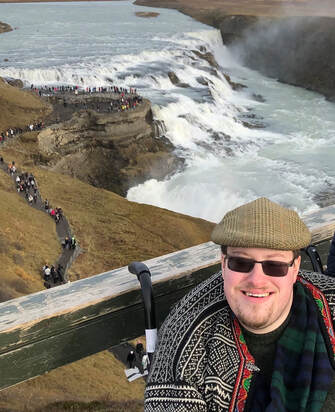
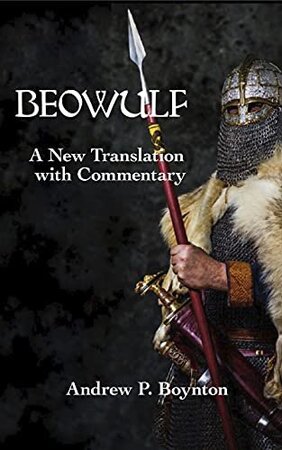
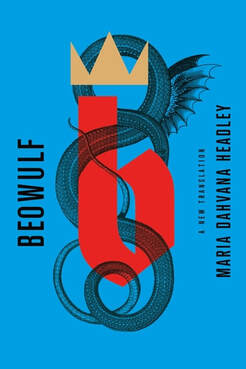
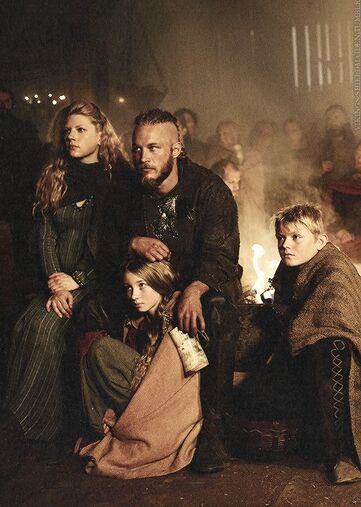


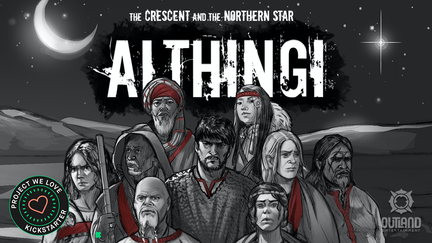

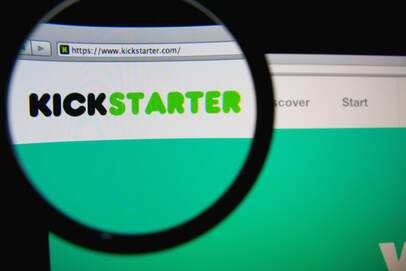


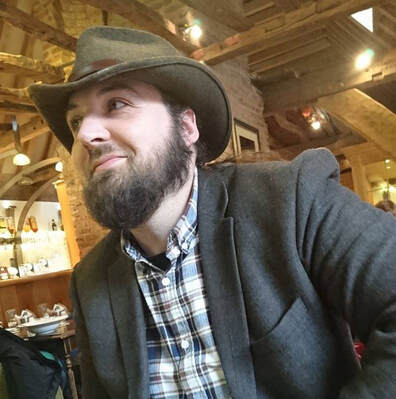

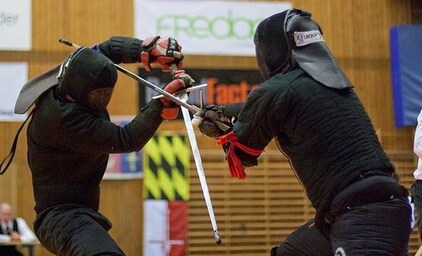
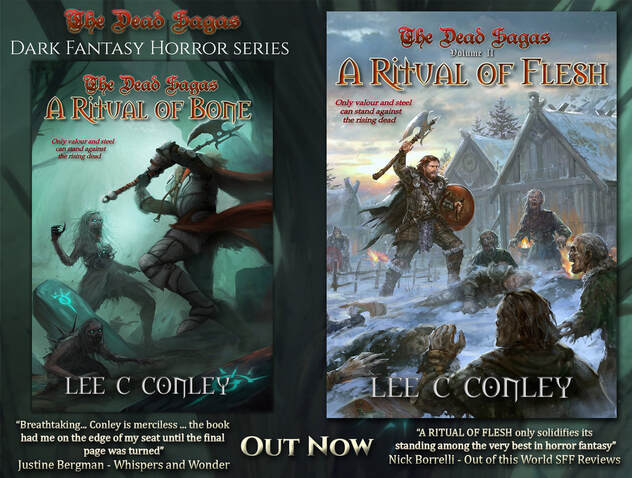
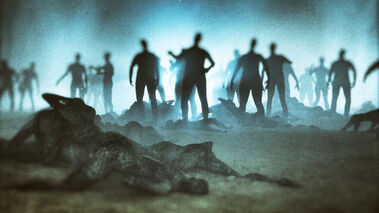
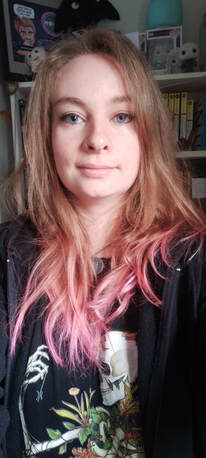
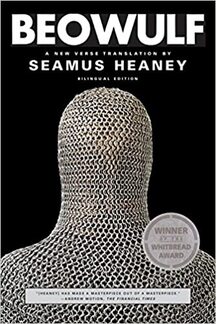
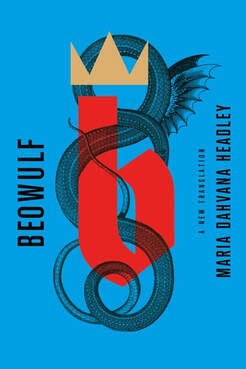
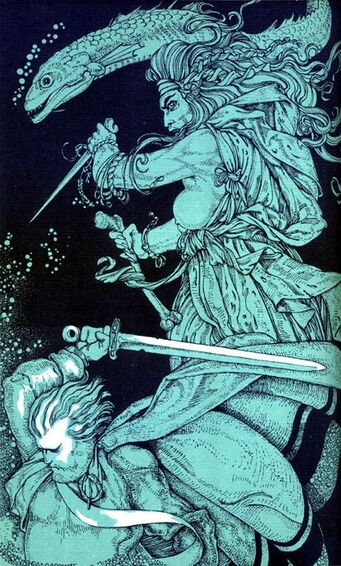
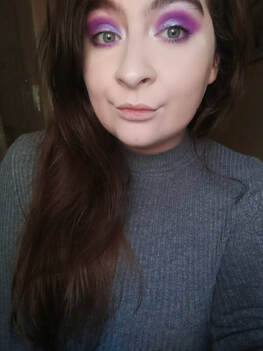
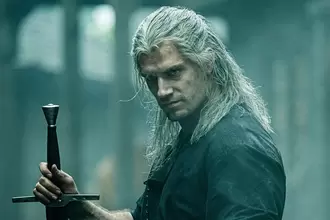
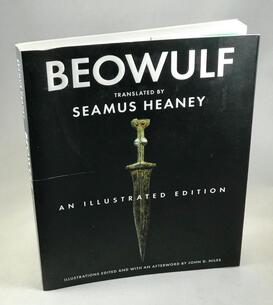
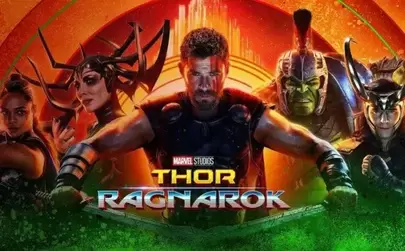
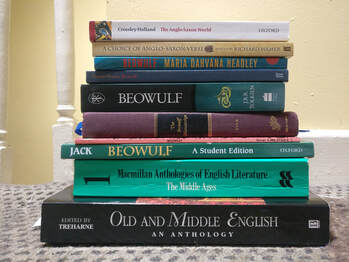

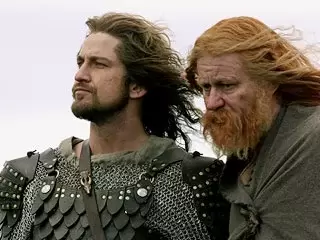

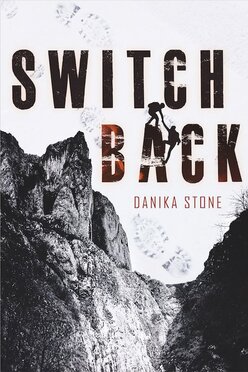


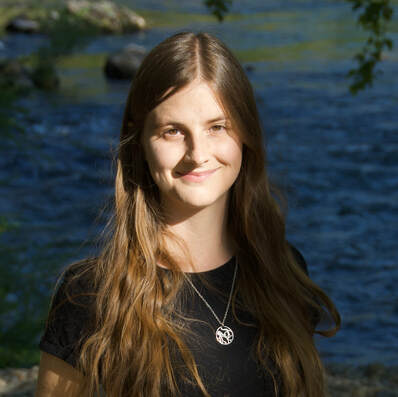

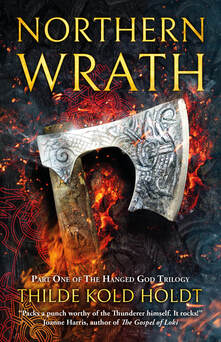
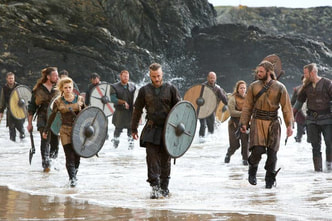

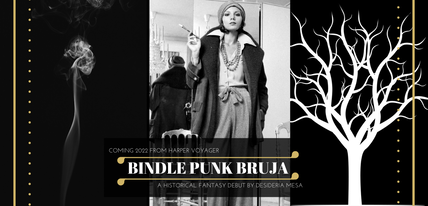
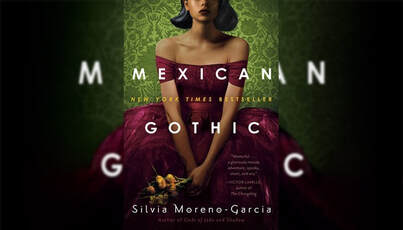
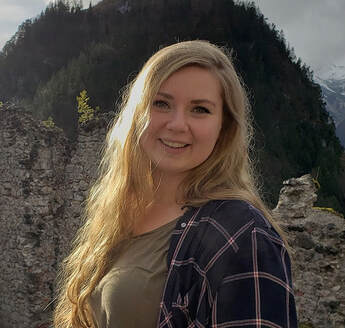

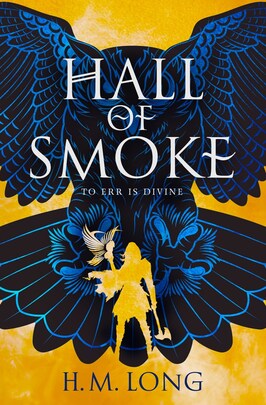
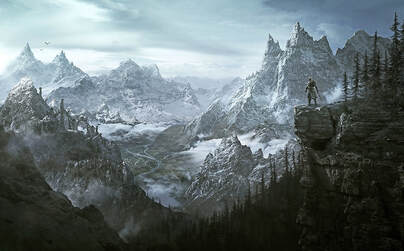

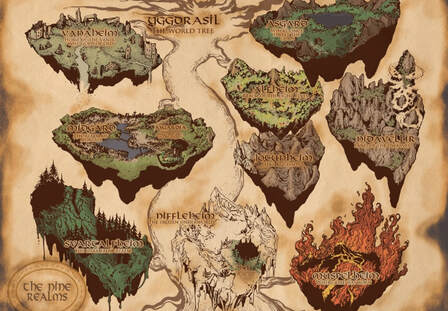
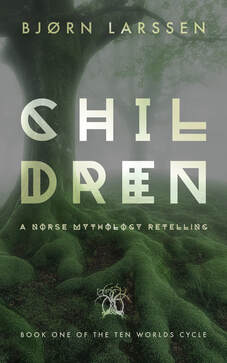

 RSS Feed
RSS Feed
